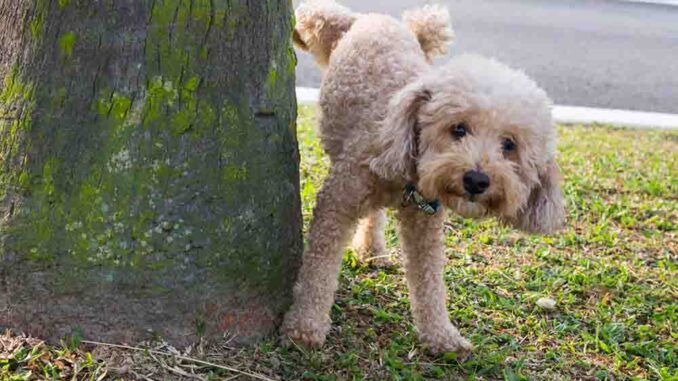
This article was updated on October 25th, 2022
As a practicing small animal veterinarian for 16 years, I have had the privilege of knowing many of my dog patients from birth to death. As dogs age, pet parents frequently complain that their dog is peeing a lot, frequently, or even inside the house. There are many possible causes for this. If your dog is affected, you should definitely seek the advice of a veterinarian.
What’s Normal Peeing?
On average, most dogs pee between 3 to 5 times per day, with at least 4 hours between each pee. However, each dog is different, and “excessive” peeing or “peeing a lot” could be defined as any significant change in your dog’s peeing habits. If your dog is peeing more often, or larger quantities, than in the past, we would consider this “excessive peeing”.
Is Your Dog Peeing Larger Amounts or Peeing More Frequently? Or Both?
To help find the right solution, the first thing to determine is what exactly your dog is doing:
- Urinating larger than normal amounts (“polyuria”), or
- Urinating frequently, usually in smaller amounts (“pollakiuria”).
Your dog could also be accidentally peeing inside the house as a result of polyuria or pollakiuria.
Informing your veterinarian of precisely what problem your senior dog is having at home (urinating large amounts or urinating frequently) helps your vet formulate a diagnostic plan.
Let’s now review the top reasons your dog is peeing a lot:
Top Reasons Causing Dogs to Pee More Frequently (Pollakiuria)
Many conditions that result in frequent peeing are fairly benign and can be easily treated with good results by your vet (For example, a urinary tract infection or bladder infection). Still, some medical reasons causing frequent peeing can also be serious, so it’s important to consult your vet to identify the true cause.
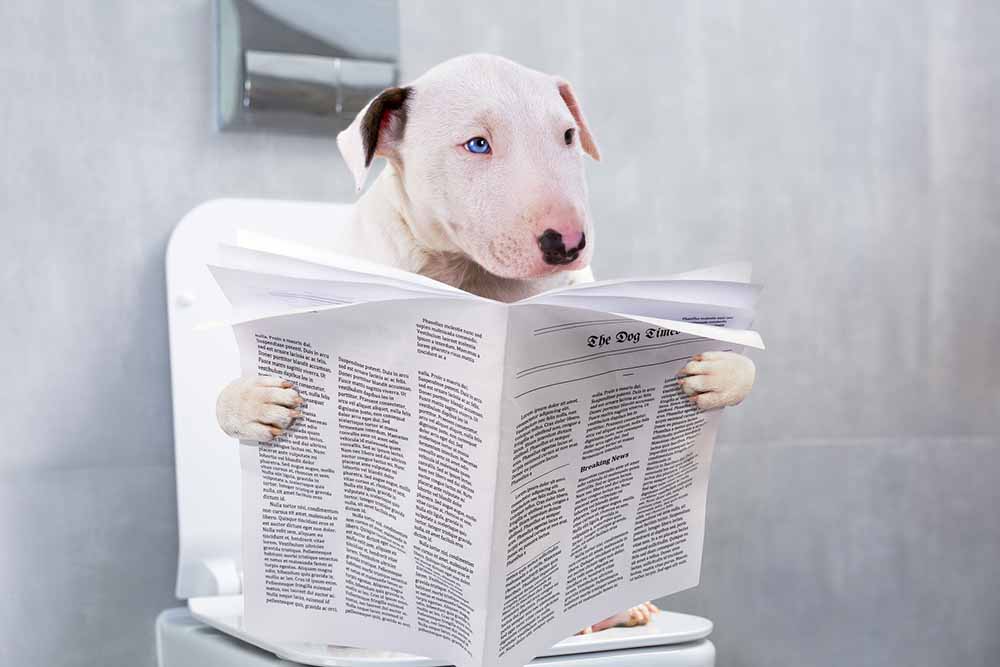
The most common causes of pollakiuria (urinating frequently) in dogs include:
– Urinary tract infection
– Bladder stones
– Bladder cancer
– Territorial marking
– Prostate disease
– Urethral blockage (stones or cancer)
Top Reasons Causing Dogs to Pee Larger Amounts (Polyuria)
The most common causes of polyuria (voiding large amounts of urine) in dogs are:
– Diabetes mellitus
– Hyperadrenocorticism (Cushing’s Disease)
– Kidney disease or failure
– Hypercalcemia
– Diabetes insipidus
– Orthopedic issues (leading to the dog withholding urine due to the pain of posturing)
Top Reasons Causing Older Dogs to Pee Inside the House
The most common causes of new house soiling for previously-trained dogs are:
– Behavioral issues
– Estrogen responsive incontinence (spay incontinence)
– Territorial marking
– Canine cognitive dysfunction syndrome
– Any of the causes for polyuria and pollakiuria mentioned above
There are many medical issues, as well as behavioral ones, that may be responsible for your dog’s peeing issue. It is essential to accurately describe which category your dog fits into to ensure proper treatment.
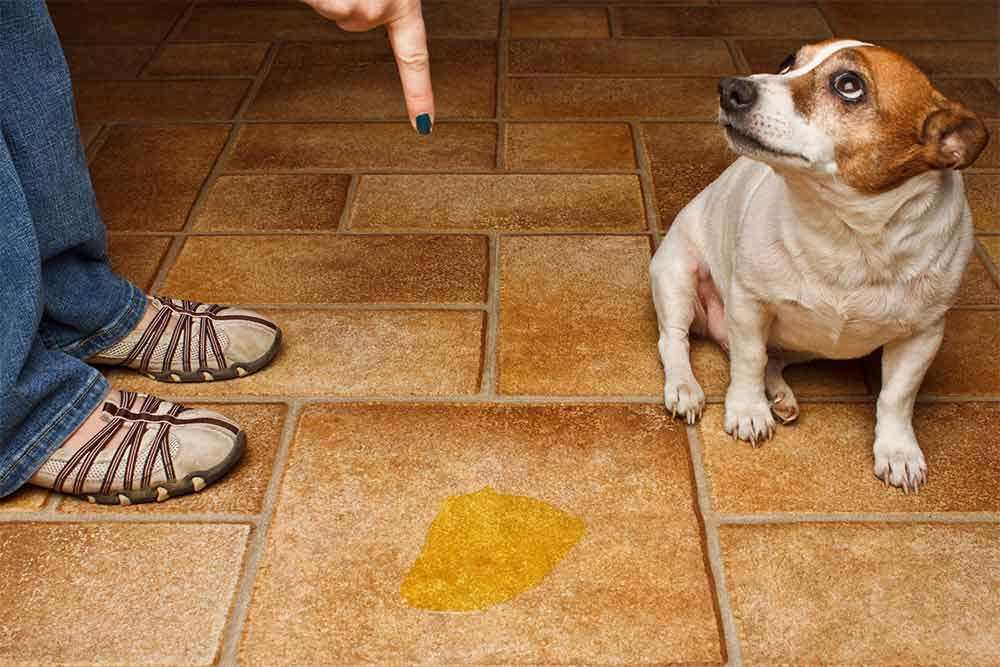
What Can You Do at Home To Help Your Dog?
While your wait for your appointment with your vet, there are practical steps you can take to help your dog:
- In the short-term use pee pads or other solutions to avoid accidents. View our article: 6 ways to manage dog incontinence and avoid messes.
- Avoid feeding your dog salted food.
- Keep a diary of your dog’s urination habits (see next section)
- Make sure your dog still has access to fresh and clean water. Dogs with excessive urination should not be withheld water at any time. Continue to provide clean, fresh water to your dog until he is able to be seen by his veterinarian.
Should I Be Worried About My Dog Peeing a Lot?
Any significant change in your dog’s urination, especially if it is persistent, is a cause for concern. Because there are so many underlying conditions that could be affecting your dog, it is essential to have them seen by a veterinarian.
Some dogs will increase their drinking in warmer weather or after vigorous exercise and therefore urinate more. Short-term, this may be normal, but if the increases persist, it is time for a visit to the veterinarian.
The good news is that most urination issues can be solved with proper veterinary care. However, the medical reasons causing your old dog to pee excessively or frequently may also be serious. Many of the medical causes of polyuria and pollakiuria can even be life-threatening, including diabetes mellitus, hyperadrenocorticism, kidney disease, cancer, and urethral blockages.
Most urinary issues can be scheduled as a regular appointment with your veterinarian, but if you ever notice that your dog is unable to pee, this is an absolute emergency. Please take your dog to your veterinarian or to the nearest emergency clinic immediately.
2 Important Tips for Your Visit To the Vet
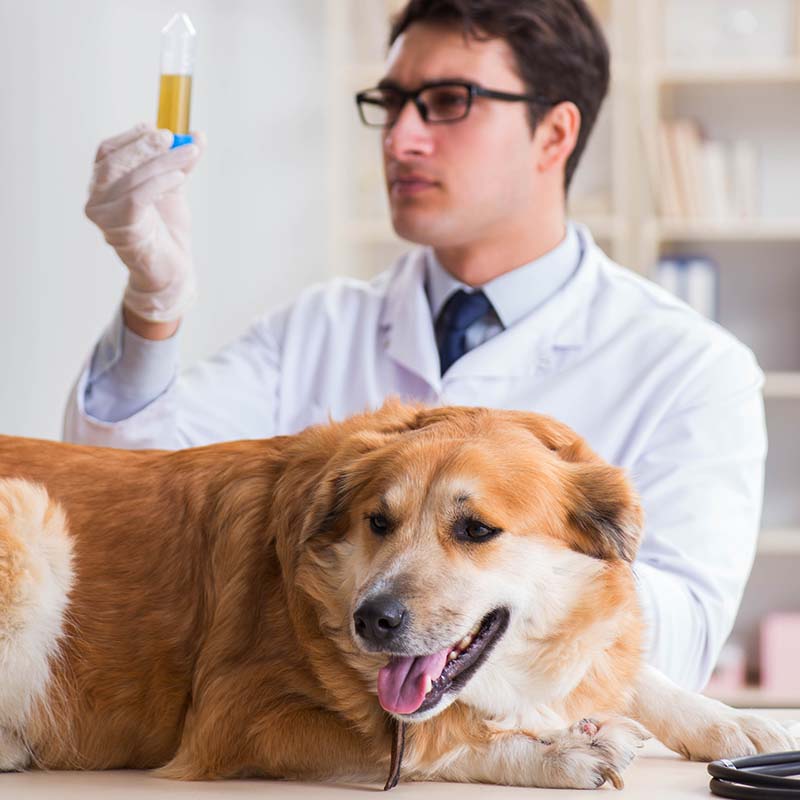
We recommend the following before your vet visit:
1) document your dog’s urination issue. It is advisable to keep a diary of how often your dog urinates, how much urine they pass if there is any straining, foul smell, or blood, and how much they are drinking. Any other changes in the dog should be mentioned as well, including lethargy, reluctance to eat, vomiting, or diarrhea.
2) If you are able, collect a fresh urine sample in a clean container and take it to the veterinarian with you. If you collect the sample the night before, simply store it in the refrigerator until your dog’s appointment. Read our practical tips for how to collect a urine sample from your dog – without the mess!
Signs that Your Dog’s Peeing is Excessive
To help, you can observe your dog’s drinking. Dogs suffering from polyuria tend to drink more, which results in an increased volume of urine. This is because they are losing a lot of water via urination and need to constantly replenish to avoid dehydration.
Besides “Drinking excessively,” some things you may notice if your senior dog has a urinary issue include:
– Asking to be let out or using the dog door more frequently
– Not being able to sleep through the night without urinating
– Posturing to urinate multiple times with only small amounts passed
– New house soiling
– Spots of urine found under the dog after sleeping
– Foul smelling urine or blood in urine
Final Thoughts
There are numerous reasons why a dog may be urinating excessively, frequently, or in the house. Whether behavioral or medical, most of these conditions can be cured or managed. An early accurate diagnosis is more likely to result in a positive outcome.
Learn More About Dog Peeing Issues
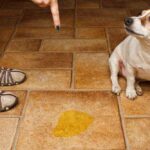 What to Do if Your Old Dog Suddenly Started Peeing Inside Because of Emotional Reasons - We have reviewed in depth the reason causing old dogs to suddenly start peeing inside the house. Most of the… [...]
What to Do if Your Old Dog Suddenly Started Peeing Inside Because of Emotional Reasons - We have reviewed in depth the reason causing old dogs to suddenly start peeing inside the house. Most of the… [...] Old Dog Incontinence - Old dog incontinence is more common in spayed females, but leaky plumbing can affect dogs of both sexes. It also… [...]
Old Dog Incontinence - Old dog incontinence is more common in spayed females, but leaky plumbing can affect dogs of both sexes. It also… [...]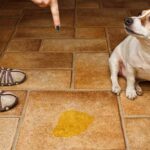 Old Dog Peeing Inside: Our Veterinarians Explain What to Do - When a previously house-trained older dog is peeing in the house, and it's not just a one-off 'accident', it's easy… [...]
Old Dog Peeing Inside: Our Veterinarians Explain What to Do - When a previously house-trained older dog is peeing in the house, and it's not just a one-off 'accident', it's easy… [...] Best Dog Incontinence Products - Dog incontinence products are designed to make life with a leaky-dog easier for everyone. It doesn't matter whether your dogs'… [...]
Best Dog Incontinence Products - Dog incontinence products are designed to make life with a leaky-dog easier for everyone. It doesn't matter whether your dogs'… [...]Disclaimer: This website's content is not a substitute for veterinary care. Always consult with your veterinarian for healthcare decisions. Read More.



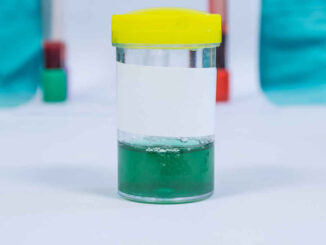


Be the first to comment